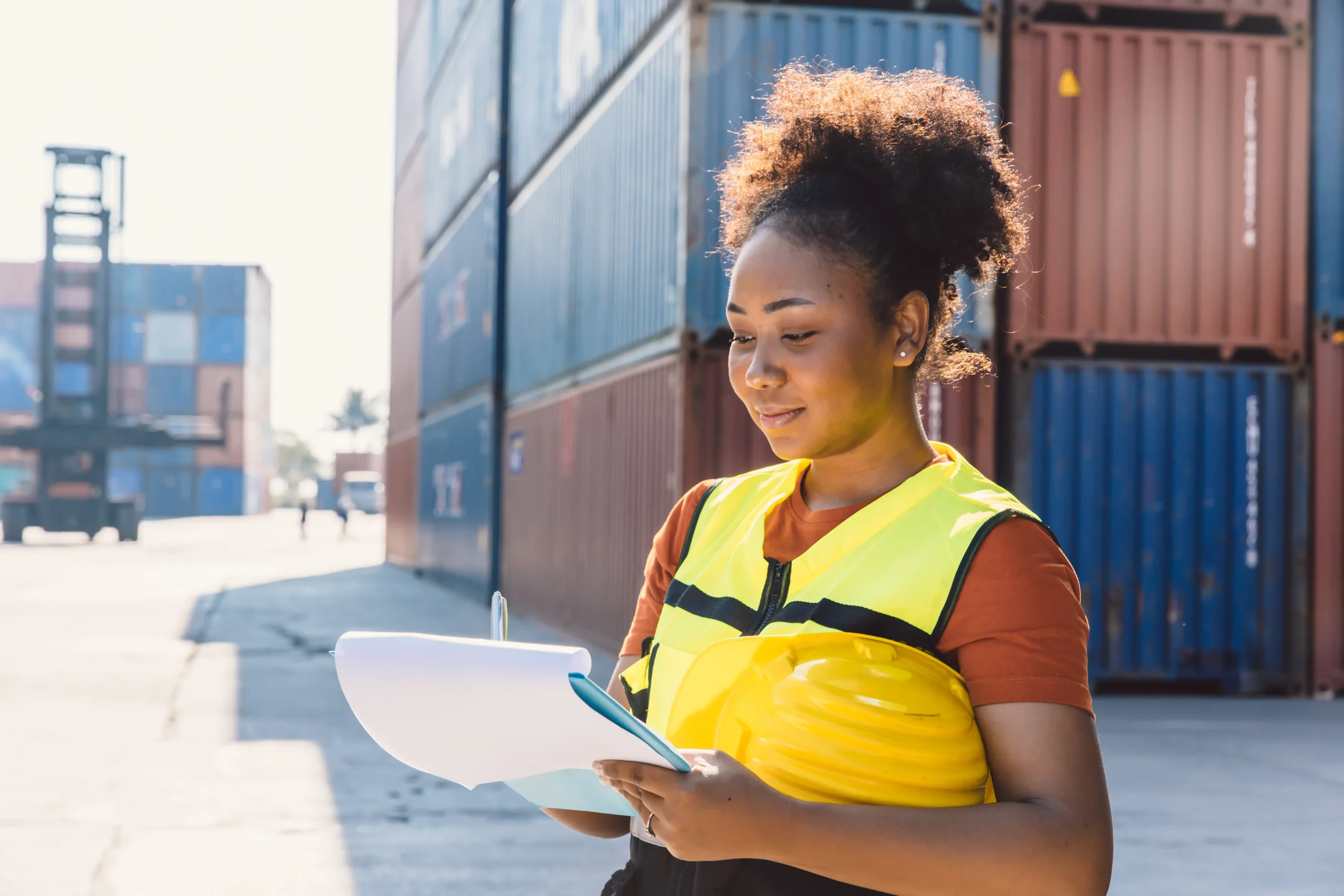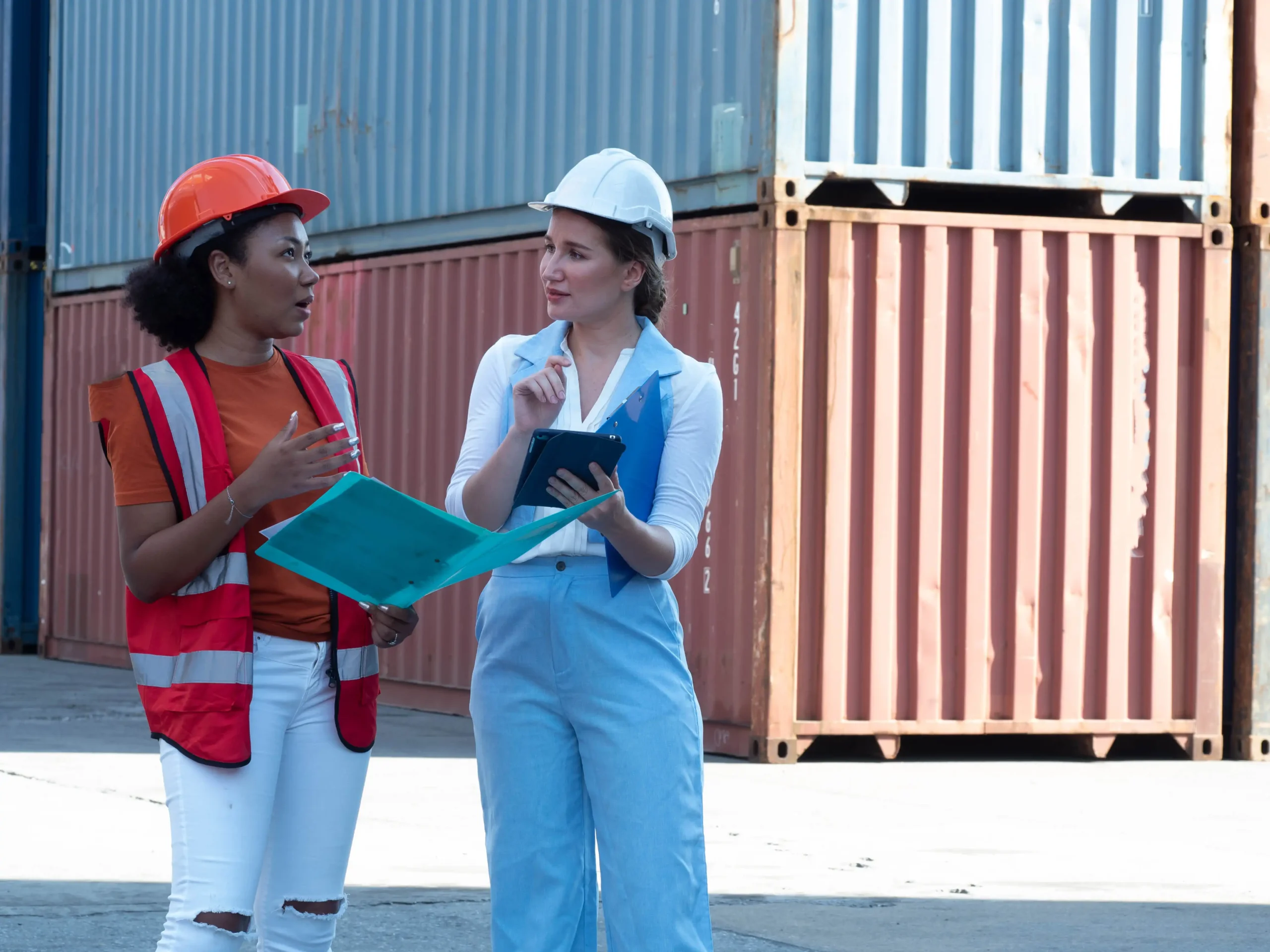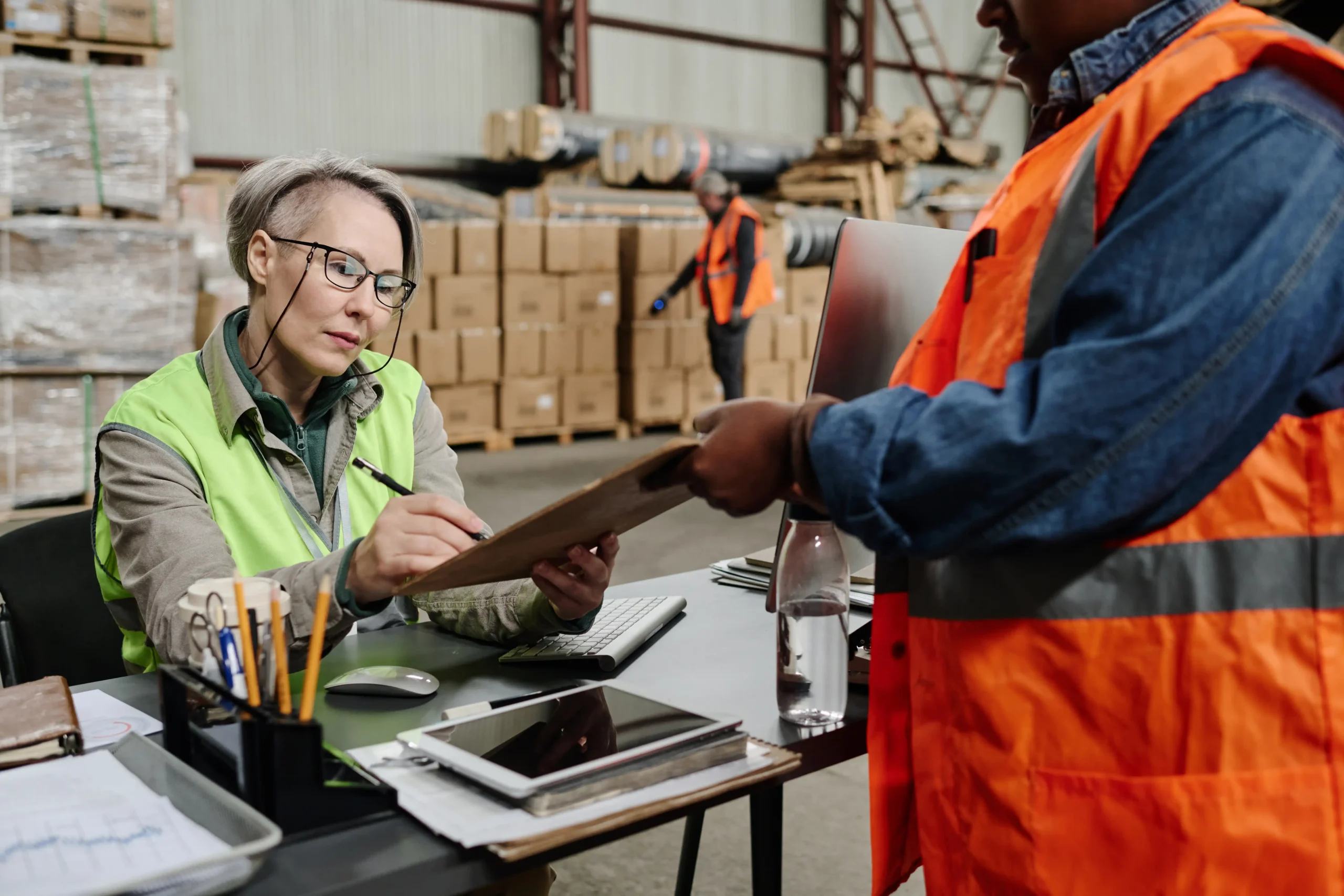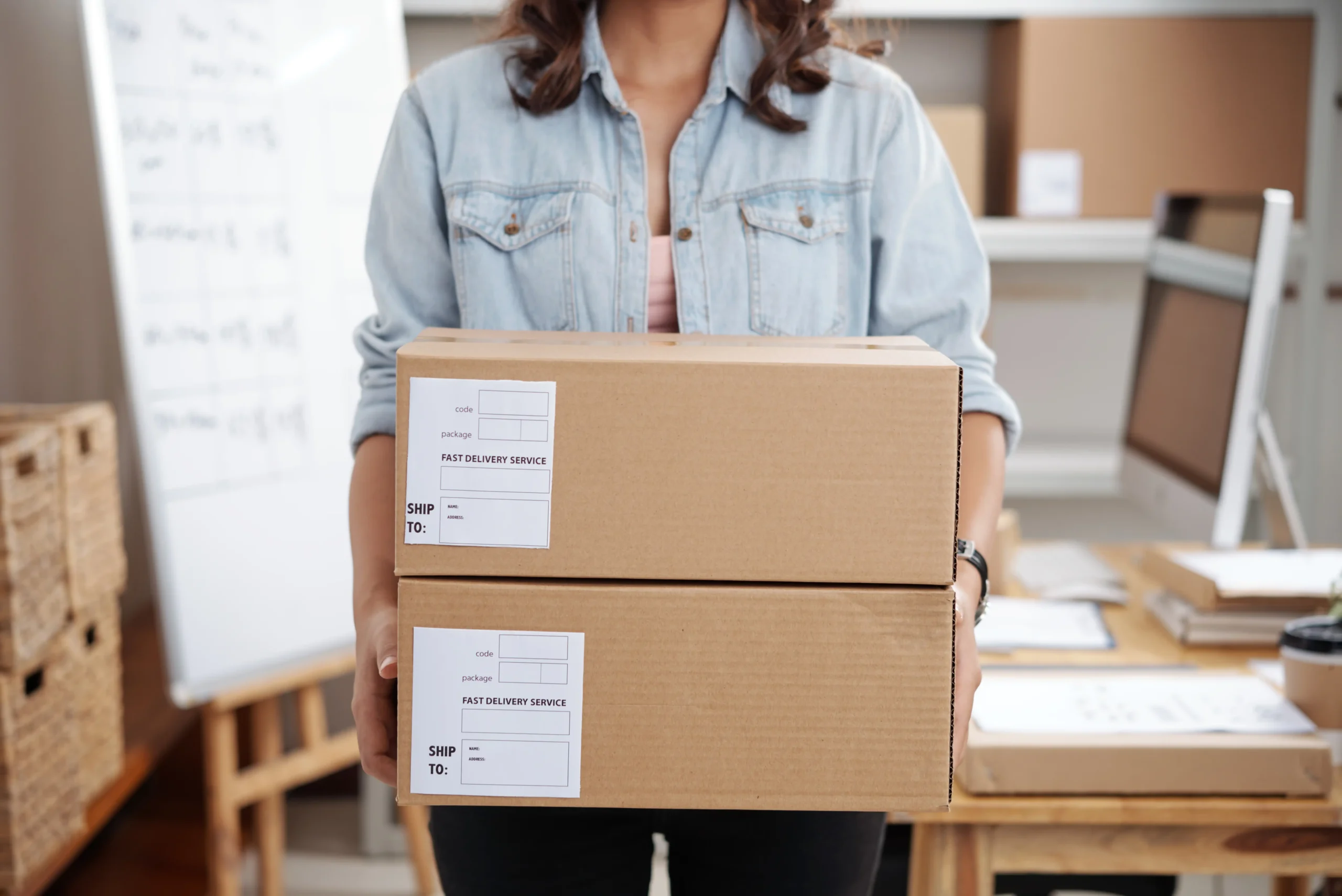Table of Contents
ToggleImport/export documentation refers to the collection of paperwork required to facilitate international trade. These documents serve as proof of compliance with legal regulations, provide details about the goods being shipped, and ensure smooth customs clearance.
At Tri-Link FTZ, I’ve seen firsthand how critical this paperwork is—not just for moving goods across borders but for building trust with partners and clients. Without accurate documentation, shipments can face delays, fines, or even complete rejection by customs authorities.
As someone who has worked in the third-party logistics and foreign trade zone (FTZ) industry for 35 years, I can tell you that understanding this documentation isn’t just helpful; it’s essential. Whether you’re shipping machinery or mangoes, the right paperwork can mean the difference between a successful transaction and a logistical nightmare.
Let’s dive into what you need to know.

Proper import/export documentation serves as the backbone of international trade. Imagine sending a shipment of electronics to Europe without a commercial invoice or a packing list.
Customs officials wouldn’t know the shipment’s value, origin, or even its intended purpose. This lack of clarity can cause significant delays and disrupt entire supply chains.
At Tri-Link FTZ, we prioritize documentation because it ensures that goods move smoothly from origin to destination. Accurate paperwork not only speeds up customs clearance but also protects businesses from unnecessary fines or legal disputes.
For instance, a certificate of origin can help a client save on import duties under a free trade agreement. These savings can translate into competitive pricing and better relationships with customers.
Moreover, import/export documentation ensures compliance with international regulations. Governments use this paperwork to prevent smuggling, ensure product safety, and enforce tariffs.
Businesses that neglect their documentation risk damaging their reputation and losing valuable contracts. By simplifying this process for our clients, we’ve built long-standing relationships and maintained our reputation as a trusted logistics partner.
There’s no one-size-fits-all approach to import/export documentation. The required paperwork depends on factors like the type of goods, destination, and mode of transport.
Here are some of the most commonly required documents:
Commercial Documents: These include the proforma invoice, commercial invoice, and packing list. A proforma invoice is essentially a quote that helps the buyer arrange financing or import licenses.
The commercial invoice, on the other hand, is a legally binding document that outlines the transaction’s details, including the value of the goods. At Tri-Link FTZ, we often advise clients to double-check their invoices to ensure consistency with the packing list.
Even minor discrepancies can raise red flags during customs inspections.
Transport Documents: Shipping goods requires bills of lading (for sea freight) or air waybills (for air freight). These documents act as contracts of carriage and proof of ownership.
In my experience, these are among the most misunderstood forms, especially for first-time exporters. A correctly filled-out bill of lading can save hours of back-and-forth with customs and freight forwarders.
Compliance and Government Documents: Certificates of origin and import/export licenses are vital for ensuring legal compliance. Some countries require additional documents like phytosanitary certificates for agricultural goods or health certificates for food products.
At Tri-Link FTZ, we’ve handled shipments requiring complex certifications, and we’ve learned that preparation is key. Knowing the regulations of your destination country can prevent last-minute hiccups.
Determining the necessary documents for your shipment begins with understanding the trade requirements of your destination country. Your buyer or importer is often the best source of information.
For example, a client shipping textiles to Canada might need a certificate of origin to qualify for reduced tariffs under the USMCA agreement. Working with a freight forwarder or customs broker is another effective way to identify the required paperwork.
These professionals are familiar with country-specific regulations and can guide you through the process. At Tri-Link FTZ, we leverage our expertise to provide clients with tailored advice.
We also recommend researching free trade agreements that apply to your goods. These agreements often require specific documentation, but the cost savings can be significant.
It’s equally important to consider the nature of your goods. Are they hazardous? Perishable? High-value?
Each category comes with its own documentation needs. By preparing these documents in advance, you can avoid delays and ensure a seamless shipping experience.

Errors in documentation are more common than you might think. Over the years, I’ve seen shipments held up because of incorrect descriptions, mismatched invoices, or missing certificates.
One of the most frequent mistakes is providing inconsistent information across different forms. For instance, the weight listed on the packing list might not match the details on the bill of lading.
Customs officials notice these discrepancies, and they can cause delays or additional inspections. Another common error is failing to meet country-specific requirements.
A client once shipped medical equipment to Asia without realizing they needed a certificate of free sale. The shipment was delayed by weeks as they scrambled to obtain the missing document.
To avoid such issues, double-check the regulations of your destination country and consult with your freight forwarder or logistics provider. Incomplete forms are another red flag for customs.
Every field matters, from the Harmonized System (HS) code to the consignee’s contact information. At Tri-Link FTZ, we’ve developed a checklist system to ensure all required fields are filled out accurately.
This proactive approach has saved our clients countless hours and headaches.
Documentation requirements can differ significantly depending on the destination. For example, European countries often require additional environmental compliance certificates for certain goods.
Meanwhile, shipments to the Middle East might require an Arab League certificate of origin. Navigating these regional nuances is challenging, but it’s also where we excel.
At Tri-Link FTZ, we’ve handled shipments to over 50 countries, each with its own set of rules. Our experience has taught us the importance of staying updated on international trade regulations.
For example, when new free trade agreements are implemented, we immediately assess how they impact our clients’ shipments. Staying proactive not only ensures compliance but also helps us identify cost-saving opportunities.
Understanding these variations is crucial for any business involved in global trade. By aligning your documentation with the specific requirements of your target market, you can minimize delays and build trust with your international partners.
Customs brokers play an indispensable role in the import/export process. These professionals are licensed to act as intermediaries between businesses and customs authorities, ensuring that shipments comply with all regulations.
Over the years at Tri-Link FTZ, I’ve seen customs brokers save clients from costly mistakes, particularly when dealing with complex shipments involving multiple jurisdictions. A customs broker’s expertise goes beyond simply submitting paperwork.
They help identify the specific requirements for your shipment, calculate duties and taxes, and even flag potential compliance risks. For instance, a broker might advise on the best HS code to use, ensuring the goods are classified correctly and subject to the appropriate tariffs.
This kind of insight can prevent delays and disputes during customs inspections. At Tri-Link FTZ, we work closely with trusted customs brokers to provide our clients with end-to-end solutions.
Whether it’s filing an EEI through the Automated Export System (AES) or securing the correct import licenses, these professionals ensure everything runs smoothly. For businesses new to international trade, partnering with a reliable customs broker is often the difference between success and frustration. Read more here.

The consequences of incomplete or incorrect documentation can be severe. Shipments may be delayed, held at customs, or even seized entirely.
Additionally, businesses can face hefty fines for non-compliance. In my 35 years in the logistics industry, I’ve seen companies lose valuable contracts because of avoidable mistakes in their paperwork.
For example, a client once attempted to export electronics without including the necessary certificates of origin. The shipment was flagged by customs, resulting in a week-long delay and significant additional costs.
This situation could have been avoided with proper preparation and guidance. Penalties aren’t just financial—they can also damage your reputation.
International buyers rely on timely deliveries, and delays caused by documentation issues can strain relationships. At Tri-Link FTZ, we emphasize the importance of getting it right the first time.
Our team reviews every document meticulously to ensure accuracy and compliance, helping our clients avoid unnecessary risks.
Technology has revolutionized the way businesses handle import/export documentation. Software solutions now streamline the preparation and submission of documents, reducing the risk of errors and saving time.
At Tri-Link FTZ, we’ve integrated several tools into our operations to enhance efficiency and accuracy. For instance, export documentation software like Shipping Solutions automates the creation of commercial invoices, packing lists, and bills of lading.
These tools eliminate redundant data entry, ensuring consistency across all forms. Additionally, platforms like AESDirect simplify the process of filing EEI with U.S. customs.
Blockchain technology is another game-changer. By creating a secure, tamper-proof record of transactions, blockchain reduces the risk of fraud and ensures transparency in the supply chain.
Meanwhile, artificial intelligence (AI) tools can analyze trade data to identify potential compliance issues before they arise. Embracing these technologies has been a game-changer for us at Tri-Link FTZ.
By investing in the right tools, we’ve been able to provide our clients with faster, more reliable services, helping them stay competitive in the global marketplace.
As international trade evolves, so does the technology that supports it. Blockchain and AI are at the forefront of this transformation, offering innovative solutions to longstanding challenges in import/export documentation.
At Tri-Link FTZ, we’ve begun exploring these technologies to stay ahead of the curve. Blockchain, for example, offers unparalleled security and transparency.
By storing documentation on a decentralized ledger, blockchain ensures that all parties have access to the same information, reducing the risk of disputes. This technology is particularly useful for high-value shipments, where trust and accountability are paramount.
AI, on the other hand, enhances efficiency by automating repetitive tasks and analyzing large datasets. At Tri-Link FTZ, we’ve seen AI-powered tools flag potential compliance issues that might have gone unnoticed.
These tools can also predict delays based on historical data, allowing us to proactively address potential problems. The future of import/export documentation is undoubtedly digital.
By embracing these technologies, businesses can streamline their operations, reduce costs, and improve accuracy. At Tri-Link FTZ, we’re committed to staying at the forefront of these advancements, ensuring our clients benefit from the latest innovations. Read more here.

For businesses looking to improve their knowledge of import/export documentation, there’s no shortage of resources. Online courses, webinars, and industry certifications provide valuable insights into the complexities of global trade.
At Tri-Link FTZ, we often recommend these resources to our clients, particularly those new to international shipping. Government websites, such as the U.S. Customs and Border Protection portal, offer comprehensive guides on compliance requirements and documentation.
Industry associations like the International Chamber of Commerce also provide useful tools, including templates for certificates of origin and trade terms. Additionally, partnering with experienced logistics providers like Tri-Link FTZ can be invaluable.
With 35 years of experience, we’ve developed a deep understanding of import/export documentation and the challenges businesses face. By sharing our expertise, we help clients navigate the complexities of global trade with confidence.
The key to successful international trade lies in mastering import/export documentation. By understanding the required documents, avoiding common mistakes, and leveraging the latest technologies, businesses can streamline their operations and enhance their competitiveness.
At Tri-Link FTZ, we’re proud to be a trusted partner in this journey, offering our clients the expertise and support they need to succeed. By following the guidelines in this comprehensive guide, you’ll be well-equipped to navigate the complexities of global trade, ensuring smooth shipments, satisfied customers, and a thriving business.
Share this article

We have other resources available upon request as well as one-on-one support and personalized answers, just like our services.
Simply contact us anytime and we’ll get back to you to answer your questions and provide meaningful answers that show you how Tri-Link supports your logistics, reduces costs, and accelerates efficiency.
Tri-Link delivers exceptional FTZ and 3PL services tailored to your global trade needs.
Our solutions combine innovation, quality, and efficiency to exceed your expectations and meet your specific requirements.